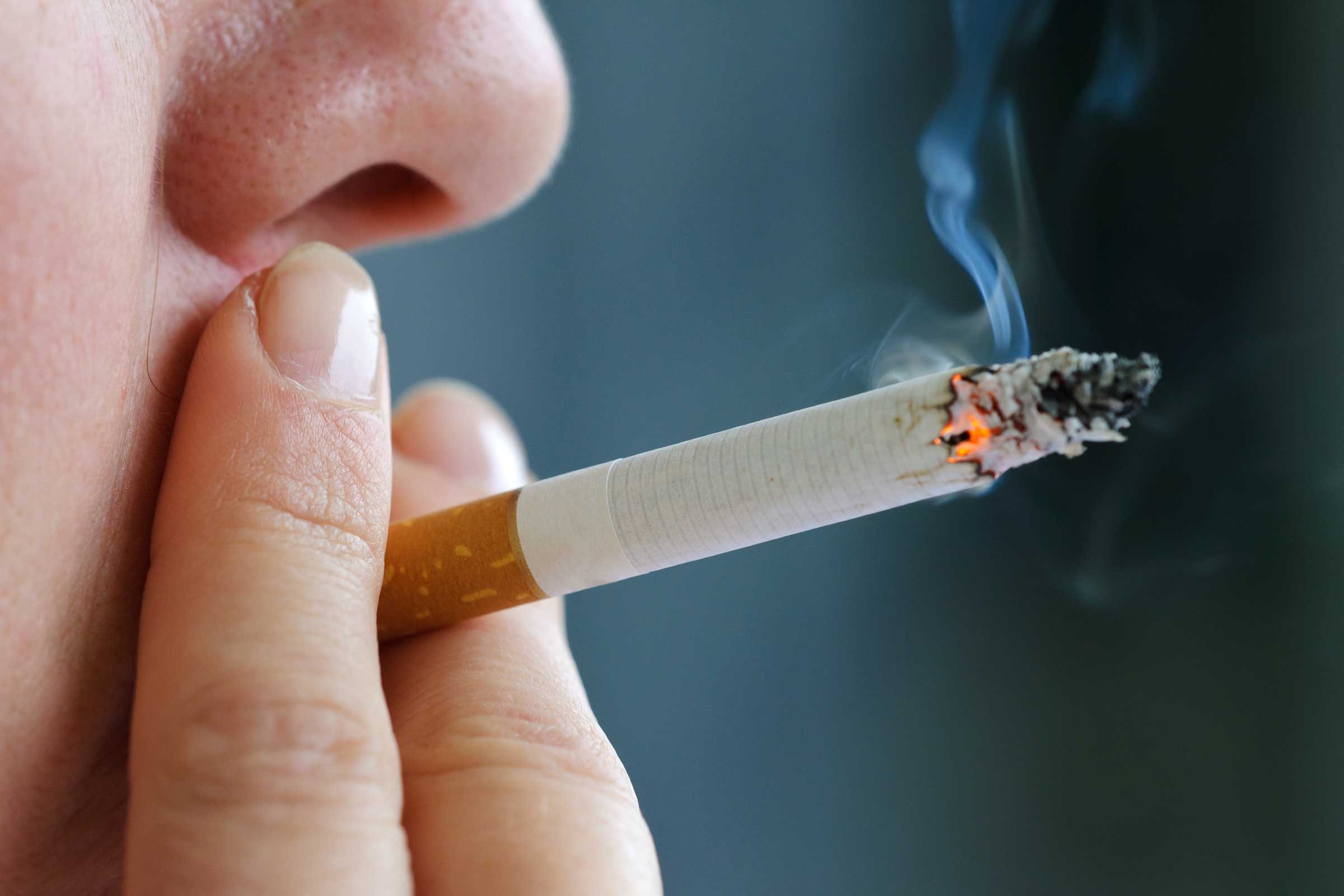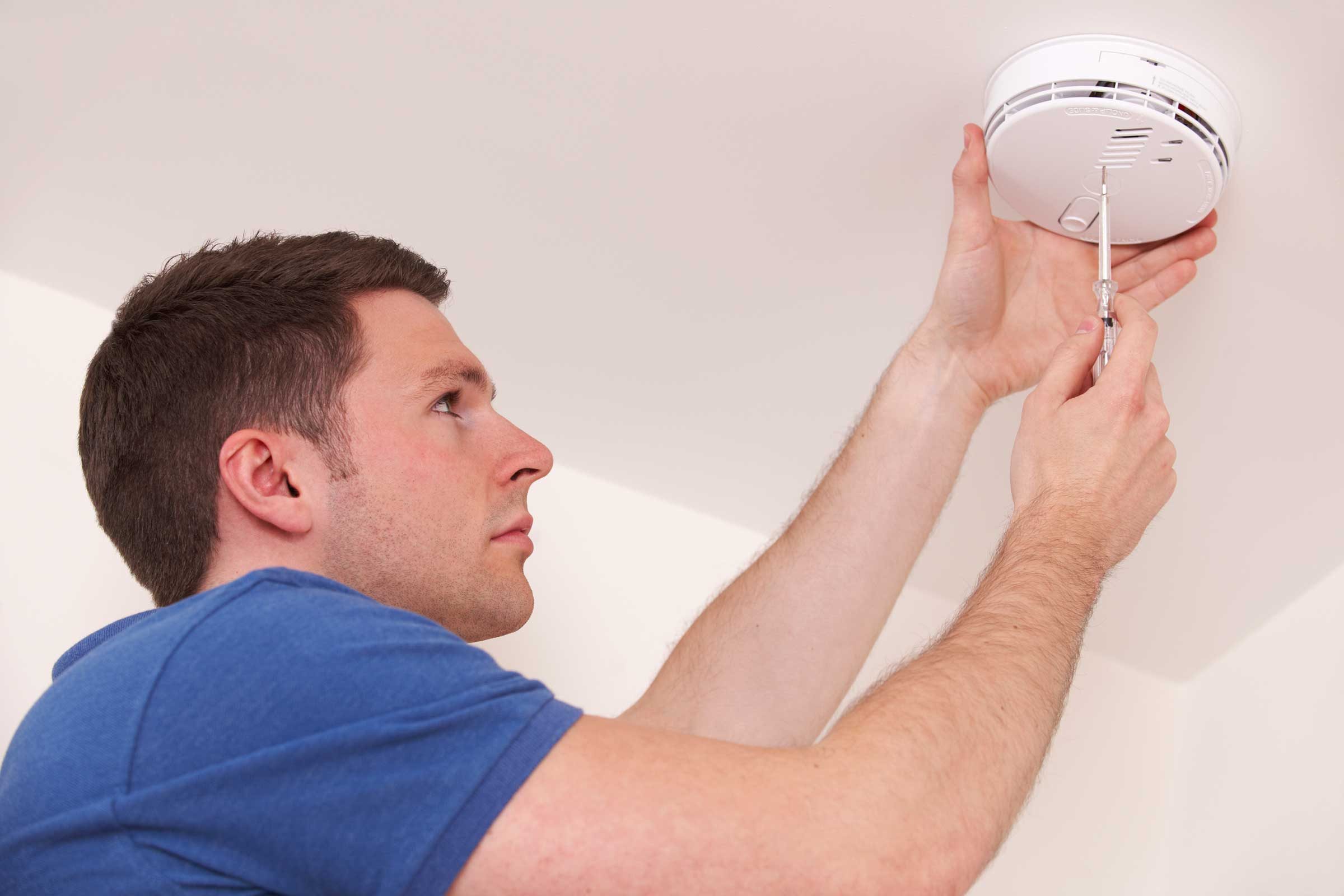
Don’t start smoking—and stop if you do
Obvious, yes. But since cigarette smoking causes 90 percent of lung cancer deaths in America, this point is essential to emphasize. The American Lung Association found that men who smoke are 23 times more likely to develop lung cancer while women who smoke are 13 times more likely to develop lung cancer than those who don’t smoke. If you don’t smoke, don’t start. If you do smoke, quit. Your life expectancy will increase. According to the National Cancer Institute, people 25 to 35 who quit live 10 years longer than people who don’t. People ages 35 to 44 can live about nine more years, and smokers who quit between ages 45 and 54 can expect six extra years. These numbers can vary depending on how long you smoked and how often. If you smoked for any length of time, it’s essential to be on the lookout for these 7 silent signs of lung cancer.

Avoid secondhand smoke areas
Although secondhand smoke isn’t as bad as smoking the cigarette yourself, it can cause cancer if you inhale secondhand smoke frequently. “Secondhand smoke does put you at risk for all the risks for cigarettes,” says Kyle Hogarth, MD, associate professor of medicine, director of the Pulmonary Rehabilitation Program at the University of Chicago. The CDC estimates that people who are exposed to secondhand smoke increase their chances of developing lung cancer by 20 to 30 percent, but quantifying the amount of smoke exposure is nearly impossible. Dr. Hogarth says factors such as your family history and the frequency and intensity of secondhand smoke can make a difference in whether you develop lung cancer or not.

Test for radon in your home
Dr. Hogarth calls radon a “silent sign” because it is a colorless and odorless gas that can be in any home’s basement. The American Cancer Society says most people are exposed to radon in their own homes. It usually enters the basement or crawlspace through cracks in the walls or floors, construction joints or gaps in the foundation near wires, pumps and pipes. People who spend time in their basement’s playroom, rec room or office may be inhaling radon. “It can leak into your house, and it’s radioactive,” Dr. Hogarth says. Radon is the second-leading cause of cancer, but there are tests that can be done to determine if radon is in the air. Have one done on your home to ensure you’re not breathing in this harmful gas. Here are the 7 key things homeowners need to know about radon testing.

Protect against harmful carcinogens at work
If you work in a job that is frequently around harmful carcinogens, such as at a construction site or in a nuclear plant, it is important that you protect yourself against those carcinogens. Most employers will insist that you wear a mask or use a respirator. Dr. Hogarth urges workers to take these preventative measures, even if they feel hot or uncomfortable. “Do what your employer says you should be doing,” he says. Pay attention to how you feel when you exit your workplace. If you have trouble breathing after you leave, Dr. Hogarth recommends getting a lung cancer screening. In fact, you should be getting one annually if you work in such conditions.

Eat right
While there aren’t any super foods that can prevent lung cancer, eating a healthy diet makes it easier to fight lung cancer should it develop. “Someone who eats well as exercises tends to be a healthier person,” Dr. Hogarth says. Eat foods rich in vitamin E such as almonds, avocados, and mangos. Eat fats and sugars in moderation and drink plenty of water. If you eat right and don’t smoke, then you shouldn’t be at a high risk for lung cancer. These are the 8 cancer-causing foods cancer doctors never eat.

Exercise regularly
When combined with a good diet and no cigarette smoke, exercising will help lower your risk for lung cancer. Dr. Hogarth encourages all his patients to “get up and move.” He recommends exercising at least three times a week, but that doesn’t mean you need to be on a treadmill or exercise bike. Take long walks around your neighborhood. If you’re going to a certain store in a mall, park on the opposite end of the mall and walk to the store. Look for easy ways to get more exercise if you don’t have a lot of time to dedicate to a gym. Lung cancer is one of many types of cancer you can prevent by exercising. These are the 15 daily habits oncologist have to prevent cancer.